Talk
Dr. Jayanta Kumar Bhattacharjee Talk 28-02-2014
Pattern Formation
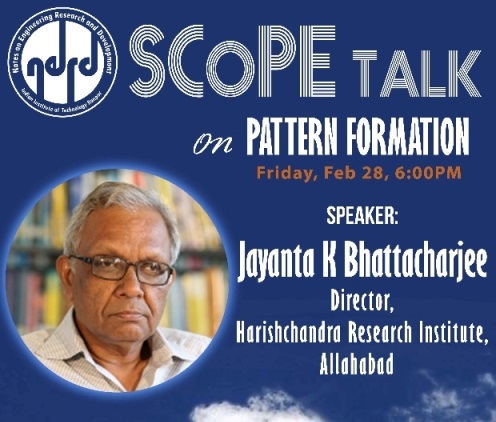
About the Talk:
Pattern Formation. The aim of this talk is to discuss pattern formation in the visible world - The cells in a cooking pan, the strips on a zebra, the clouds in the sky - as a result of competition between opposing forces.
About the Speaker:
Dr. Jayanta K. Bhattacharjee, Director, Harish Chandra Research Institute, Allahabad, is an eminent physicist who has once been a Professor of the Physics Department in IIT Kanpur.
Dr. HC Verma Talk 31-10-2013
Understanding Nature Through Science
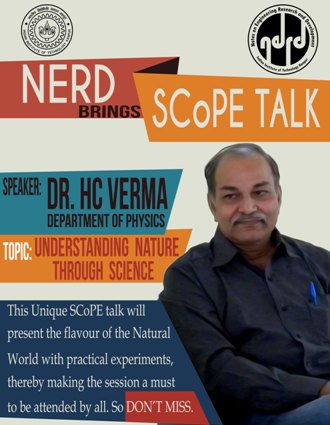
About the Talk:
Understanding Nature through Science. The very essence of science is to understand the happenings of the natural world around us. It is, as Feynman put it, being allowed to look at a game of chess and figure out not only the rules, but the reason for their execution as well. We all see strange things in nature all around us, but do we question the Why's and How's of those natural phenomena? It is this curiosity which leads to the development of science. This discussion will try to provide a different perspective to the way we see and understand nature. There will be some demonstrations to understand our daily life phenomena and the hidden physics behind simple experiments. Prof H.C. Verma, who needs no introduction, through his unique style shall present before us, through a number of experiments, this way of understanding the natural world around us. From the seemingly mundane events in everyday life to the depths of the fundamental principles behind them - one needs to understand to experience them fully.
About the Speaker:
Dr. Harish Chandra Verma joined the Physics Department in 1994. He obtained his doctoral degree at the Indian Institute of Technology (I.I.T.) Kanpur, working under the supervision of Prof. G.N. Rao. Subsequently he worked as Lecturer and then Reader at Patna University, India. He is working with ion beams though he has interest in Condensed Matter and Materials Applications. He has authored several books including Concepts of Physics at introductory college level and Quantum Physics at college level. He is presently working on books on Electrodynamics and Special Relativity. Through Shiksha Sopan,he is communicating Science to rural areas.
Ms. S. Priyadarshini24-02-2010
Science, Media and risk - the intricate relationship
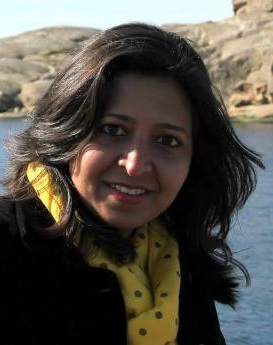
About the Speaker:
Ms. S. Priyadarshini, Editor, Nature India - one stop site for information on Indian science, delivered a talk 'Science, media and risk - the intricate relationship' on February 24, 2010. The talk introduced science journalism - why it is needed at all, its status in India and abroad and basics of science news reporting and editing, and necessary precautions required before publishing any science related story in media, through enough anecdotes and examples of science news to show how science news is presented. The talk also gave an overview of the scope of the field of science journalism - how students can start contributing articles for science news portals/ newspapers by freelancing, how faculty members, without disturbing their research work, can get their work across to the media, how should the interaction of a scientist be with media, and last but not the least, the future of science journalism as a career option for those interested. Winner of BBC World Service Trust award for environment reporting, Ms. Priyadarshini has covered science news for The Indian Express, The Telegraph, The Asian Age, Press Trust of India and has been Science Editor, Down to Earth.
Dr. Manoj Patairiya19-09-2009
Science communication in India

About the Speaker:
Dr. Manoj Patairiya, Director of National Council for Science and Technology Communication (NCSTC), DST and the President of Indian Science Writers' Association (ISWA) gave a lecture on "Science Communication in India" on 19th September, 2009 where he talked about what exactly is science communication, what is its present state in India, what measures have been taken to make the common people realize the significance of science, and to build a scientific temper among them, what are the challenges in this area and what is the future vision of science communication and journalism in India. Dr. Patairiya, the editor of Indian Journal of Science Communication (IJSC), holds a PhD in science communication and has received the prestigious B. C. Deb Memorial National Award for Popularisation of Science by the Indian Science Congress Association in 2000.
Dr. Pradeep Srivastava19-09-2009
Scientoons: Enjoy Science with fun
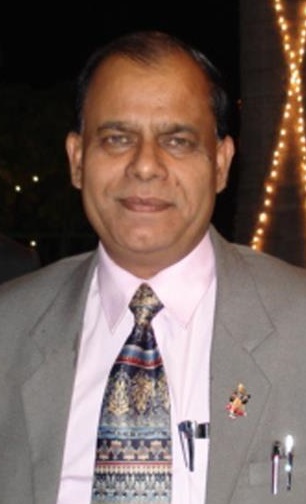
About the Speaker:
Dr. Pradeep Srivastava, Senior Scientist in the Medicinal and Process Chemistry Division at the Central Drug Research Institute, Lucknow, gave a lecture titled "Scientoons: Enjoy Science with fun" on 19th September, 2009. Dr. Srivastava developed the field of Scientoonics while delivering a lecture in 1988 at an Asian conference at NUS, Singapore. He was awarded the International Young Person of the Year Award by the Junior Chambers Association (USA). Scientoonics is a new branch of science which deals with effective science communication using a novel class of science cartoons called Scientoons. Scienctoon not only make you smile and laugh but also provide information about new research, new subjects and concepts in a simple, understandable and interesting way.
Mr. Abhay S D Rajput
Bull Scientifique
Mr. Abhay S D Rajput, a research associate (journalism) at Indian Council of Agricultural Research (ICAR), has been a S. Ramaseshan Science Writing Fellow at the journal Current Science. Author of ‘Handbook on science journalism’, he has extensive experience in communicating science through radio, films and print since 2005. He gave introductory lecture on science communication, on January 16, where he talked about the need and scope of the field and career opportunities in the same. Two workshops—one on principles and policies of effective science communication and the other on research reporting and science writing were also conducted. He has received Rajat Jayanti Science Communication Award 2008 by Department of Science & Technology, and holds a masters in science communication from DAVV, Indore.
Mr. Arvind Gupta
Trash to treasure
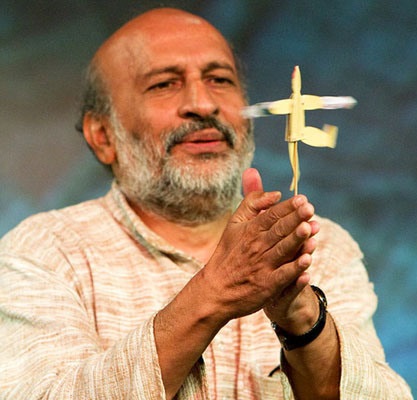
About the Speaker:
The bearded man in khadi kurtaa Mr. Arvind Gupta is a toymaker. You may call him a magician as well. He has taught hands on science and toy-making workshops to thousands of children throughout India, and has written his trash-to treasure lessons written up in numerous books, all freely available at www.arvindguptatoys.com. When he took out his ‘jhola’ in the jam packed lecture hall on January 3, we got a glimpse of what has been revolutionizing science teaching in India—dozens of toys as whirling thread rings, tone-changing flutes, wallclimbing critters etc. in a small plastic dabba full of thread, buttons, scissors, straws, matchboxes, marbles, empty ball pen-refills, and other throwaway items. He is a Distinguished Alumnus Awardee of IIT Kanpur, a UNESCO consultant on science education and winner of India’s National Award for Science popularisation.
KP Madhu
Mediated Myths
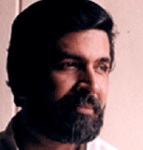
About the Speaker:
KP Madhu, Producer of Turning Point (Times Television) gave a talk on how scientifically trained young people can help improve the scientific content of media.
Media agencies do not have enough scientifically trained professionals and therefore the reports have no scientific basis. Yet, since media goes on repeating some of these reports, they become commonly accepted “truths”. This talk explored three such “truths” and raise questions about the scientific validity of the ideas behind three such popular mediated notions: ozone hole, climate change and female foeticide.
